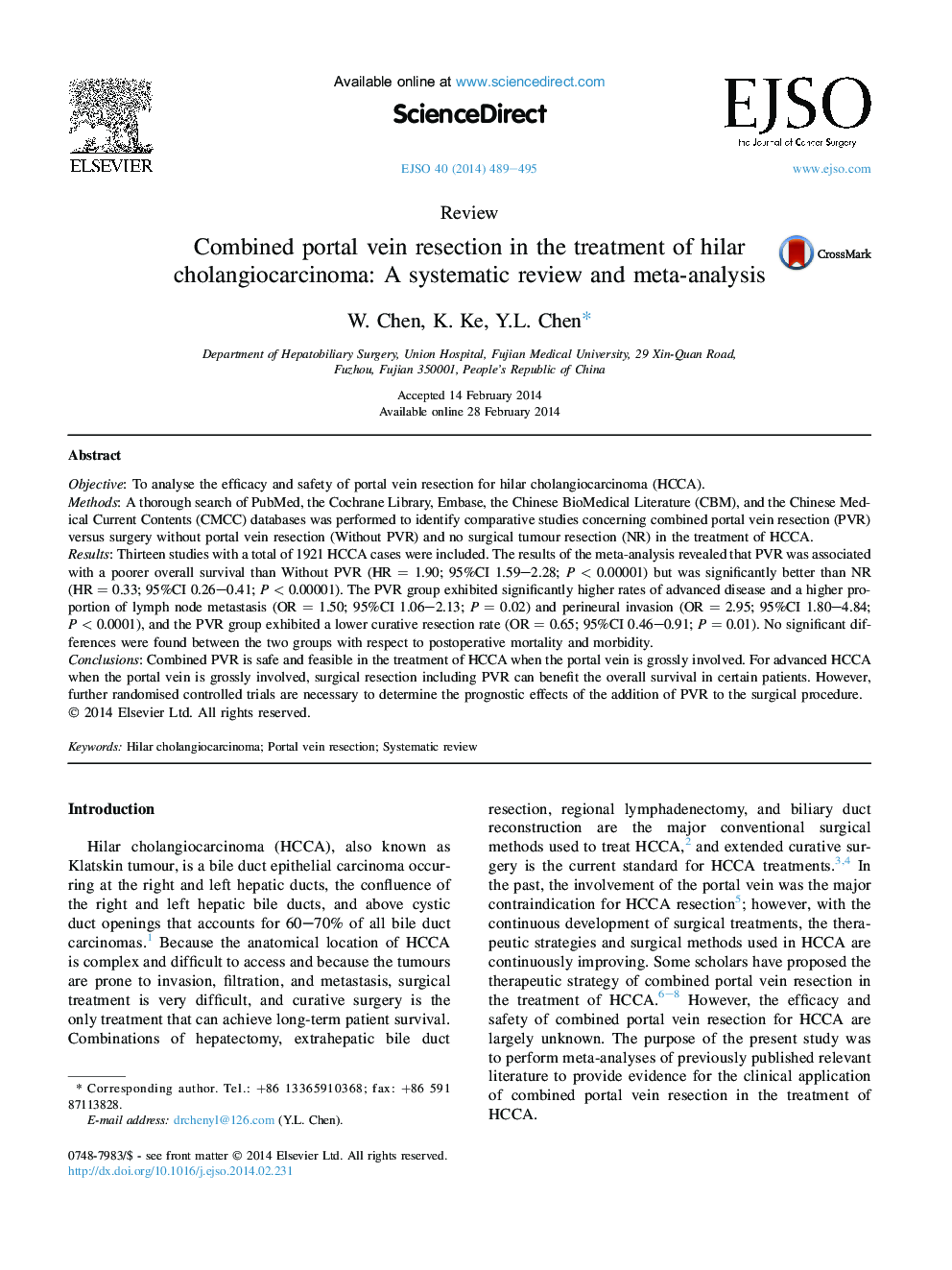| Article ID | Journal | Published Year | Pages | File Type |
|---|---|---|---|---|
| 3985368 | European Journal of Surgical Oncology (EJSO) | 2014 | 7 Pages |
ObjectiveTo analyse the efficacy and safety of portal vein resection for hilar cholangiocarcinoma (HCCA).MethodsA thorough search of PubMed, the Cochrane Library, Embase, the Chinese BioMedical Literature (CBM), and the Chinese Medical Current Contents (CMCC) databases was performed to identify comparative studies concerning combined portal vein resection (PVR) versus surgery without portal vein resection (Without PVR) and no surgical tumour resection (NR) in the treatment of HCCA.ResultsThirteen studies with a total of 1921 HCCA cases were included. The results of the meta-analysis revealed that PVR was associated with a poorer overall survival than Without PVR (HR = 1.90; 95%CI 1.59–2.28; P < 0.00001) but was significantly better than NR (HR = 0.33; 95%CI 0.26–0.41; P < 0.00001). The PVR group exhibited significantly higher rates of advanced disease and a higher proportion of lymph node metastasis (OR = 1.50; 95%CI 1.06–2.13; P = 0.02) and perineural invasion (OR = 2.95; 95%CI 1.80–4.84; P < 0.0001), and the PVR group exhibited a lower curative resection rate (OR = 0.65; 95%CI 0.46–0.91; P = 0.01). No significant differences were found between the two groups with respect to postoperative mortality and morbidity.ConclusionsCombined PVR is safe and feasible in the treatment of HCCA when the portal vein is grossly involved. For advanced HCCA when the portal vein is grossly involved, surgical resection including PVR can benefit the overall survival in certain patients. However, further randomised controlled trials are necessary to determine the prognostic effects of the addition o
